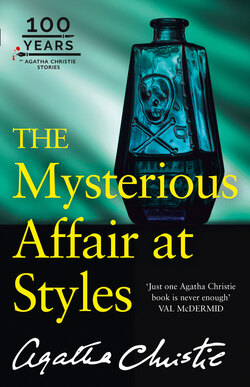Читать книгу The Mysterious Affair at Styles - Agatha Christie, Georgette Heyer, Mary Westmacott - Страница 6
DRUGS AND DETECTIVE STORIES by Agatha Christie
ОглавлениеIn the last war in 1916, I worked in the dispensary of the Red Cross Hospital in Torquay. It was whilst working there that I wrote my first book, The Mysterious Affair at Styles.
It is odd to find oneself, after a lapse of twenty-five years, back doing the same job. Finding, alas! that one is much slower, much less confident, much more apprehensive of making a mistake. Hordes of proprietary preparations now bewilder and confuse one. One asks the same question again and again. The white dispenser’s coat has now to be of outsize!
And uneasily there comes to one’s memory the scorn with which, twenty-five years ago, one regarded ‘these old dug-outs who come and try to do things and are too slow for anything!’ Alas, one is now a ‘dug-out’ oneself! So is Time avenged.
It was during slack hours in the dispensary, in 1916, that the idea of writing a detective story came to me.
Stimulated by my surroundings, the near proximity of the poison cupboard, of Martindale’s Extra Pharmacopœia, of various books on therapeutics and dispensing which I had recently read with devout attention, the only difficulty I experienced was the embarrassing richness of the choice of material. The victim was selected. I saw her in my mind’s eye—an elderly, purse-proud woman surrounded by avid relations awaiting her death. The murderer I had also selected from among them. It remained only to determine the method of her removal.
I finally found my inspiration in one of the instructional books on the art of dispensing. In the same book, by the way, was a naïve and revealing sentence. It ran, as far as I can remember, ‘but the best dispensers do not breathe on their pills however much this may facilitate their manipulation.’ I have had a distinct preference for mass-produced pills ever since!
By slow degrees, in off moments, the book got itself written and then rewritten, and finally, after the usual vicissitudes—refusal by two publishers, loss of the manuscript by another, discouraging criticism—I was at last summoned to a publisher’s office some two years later. So was laid the foundation of what I might describe as my career of Crime!
Since then, Blood has been my portion! Blood and Bodies! Blood spilt in the libraries, in railway trains, on golf courses; Bodies discovered in aeroplanes, on Nile steamboats, buried in bunkers or lying prone on beaches. Bodies stunned, shot, stabbed, strangled and poisoned.
They can’t, of course, be poisoned every time—but I’m happier when they are! Firearms make me acutely nervous— I know so little about them. I always try to avoid going into details. When it comes to poison I feel more on my own ground. One has at least enough knowledge to ensure that, even if death is not likely to occur under the circumstances described, no one will be able to say positively that it couldn’t! By the way, neither doctors nor pharmacists ever agree as to what is going to be lethal. One will say cheerfully: ‘Oh yes, that ought to do for her all right!’ whilst another will object: ‘Don’t think that would do her in for a minute!’ And trial and error is ruled out!
Finding suitable drugs to use in a book is not so easy as one might think. Anything really rare and recherché is usually ruled out because, being difficult of access, it narrows your field of potential suspects. So arsenic in the ever-present weed killer, and cyanide for the convenient wasp, will always retain their posts as the writers’ first favourites.
However, I have had my fun with strychnine, nicotine, morphine, phosphorous—and just a dash of N-methyl-C-C-cyclohexenylmethylmalonylurea because, after all, why not a good sounding name?
There are, too, limitations in poisons on the grounds of good taste! The reader smiles appreciatively as the victim turns purple in the face, gives a few strangled gasps and slides down dead from his chair—but he would feel somewhat disgusted to read a too realistic account of vomiting and purgation. The ‘facts of death’ have to be tactfully disguised.
Hemlock gave a dignified death to Greece’s so-called corrupters of the State. It takes a Fascist mind to think of castor oil!
The fact remains that the supreme cliché of the detective story is the drug that permits the victim to gasp out one unnecessarily cryptic sentence before expiring!
And now, whilst waiting for the next batch of out-patients to arrive, I can look round the shelves and once more choose my poison for the next book.
What would my old friend, Hercule Poirot, fancy?
AGATHA CHRISTIE
London
1941
